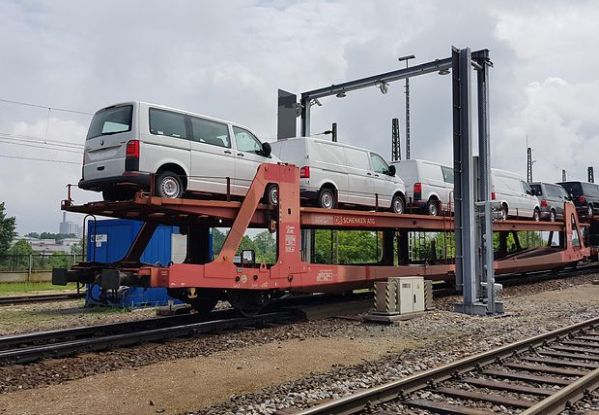THE Munich-North marshalling yard has been converted into Germany’s first digital freight yard.
DB Cargo’s aim for the project is to largely automate train dispatch, which it says will increase the yard’s capacity by up to 40%. It claims freight trains will be able to depart faster, with more flexibility and more frequently.
It forms part of DB Cargo’s plan to replace 30 million lorries by 2030, saving 10 million tonnes of CO2.
Funding for the conversion of the yard came from the Federal Ministry of Transport and Digital Infrastructure (BMVI) with more than €14.5m from its Future Rail Freight Transport federal programme. DB Cargo is adding a further €12m.
“Where today steel couplings are still connected by hand, brakes and vehicles are checked and laboriously manoeuvred, tomorrow the intelligent digital technology will do it automatically for us,” says federal transport minister, Mr Andreas Scheuer. “We accelerate and improve the processes. Freight trains can thus be put together more efficiently, faster, and more cost-effectively in the future.”
Checks will be carried out using a camera bridge that will photograph individual wagons from all sides. Working with universities at Wuppertal and Fresenius, DB Cargo is developing algorithms that automatically detect and report damage to the wagons. This will be set up in August.
It is also expected that brake tests will be carried out remotely with sensors in the wagon checking the brakes and sending the data digitally. DB Cargo, in a joint funding project with the Technical University of Berlin, is testing the first train this year using this technology.
DB Cargo also plans to fit shunting locomotives with sensors that monitors the tracks and surrounding areas, as well as guidance and control technology that regulates acceleration and braking. It is being tested at the Munich-North yard, and it is expected up to 40 fully automatic locomotives could be used on shunting systems across Germany.
Various digital automatic coupling (DAC) prototypes are being tested across Germany, with six companies including DB Cargo involved in the trials. A test train equipped with a DAC should operate in Europe by the end of the year, with a goal to equip around 500,000 freight wagons across Europe with standardised DAC technology.

